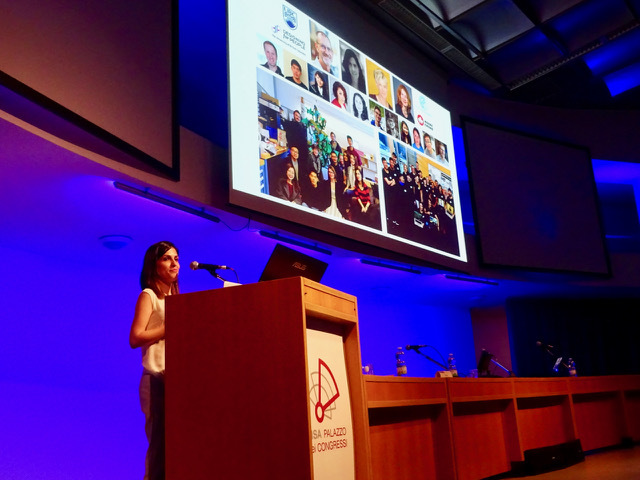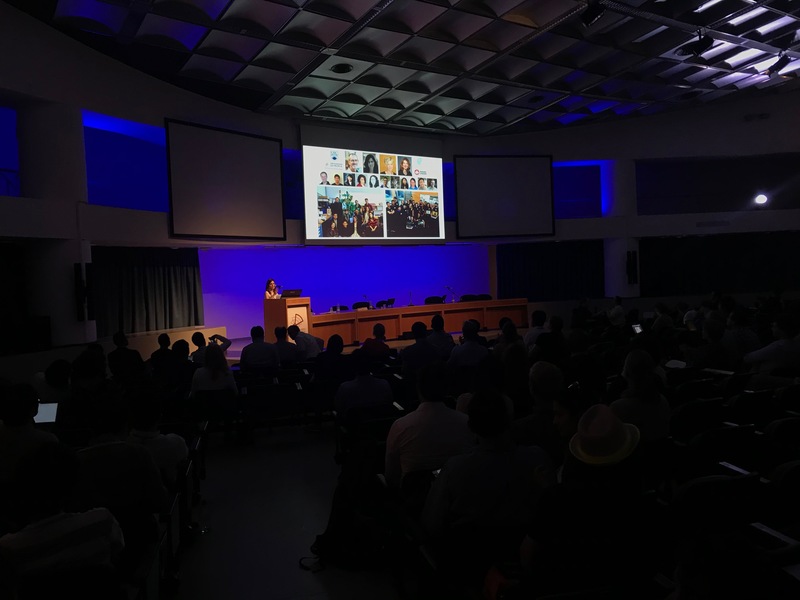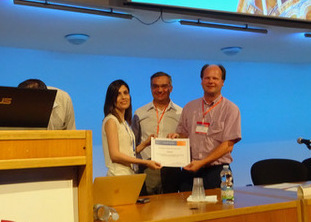Hasti Seifi wins EuroHaptics Society prize for best Ph.D. thesis
- 15 June 2018
- Haptic Intelligence
Dr. Hasti Seifi is the winner of the 2017 EuroHaptics Society award for the best Ph.D. thesis in the field of haptics. While Ms. Seifi is currently a postdoctoral researcher at the Max Planck Institute for Intelligent Systems (MPI-IS) in Stuttgart, the award honors research she conducted at the University of British Columbia (UBC) in Canada, where she completed her doctorate in Computer Science under the supervision of Professor Karon E. MacLean.
Pisa – Dr. Hasti Seifi is the winner of the 2017 EuroHaptics Society award for the best Ph.D. thesis in the field of haptics. While Ms. Seifi is currently a postdoctoral researcher at the Max Planck Institute for Intelligent Systems (MPI-IS) in Stuttgart, the award honors research she conducted at the University of British Columbia (UBC) in Canada, where she completed her doctorate in Computer Science under the supervision of Professor Karon E. MacLean.
Only one person is selected for this award each year. The reviewers read all of the nominated dissertations and select the winning thesis based on its scientific quality and expected impact on the field. “It’s very competitive to be selected. I was not expecting it at all – it was a great surprise, and I’m so thankful!”, says Seifi.
Dr. Seifi was co-nominated for this award by her doctoral advisor, Dr. MacLean, and by her postdoctoral advisor, Dr. Katherine J. Kuchenbecker, who is a director at MPI-IS. “One of the other postdocs on my team suggested that I nominate Hasti for this award because her dissertation is so impressive. I am delighted that our nomination was successful, and I’m grateful to have the opportunity to work with Hasti here in Stuttgart.”
Dr. Hasti Seifi accepted this prestigious prize at the 2018 EuroHaptics conference in Pisa, Italy, on Thursday, June 14. In addition to receiving an honorarium of 1000 Euros, she had the opportunity to present an overview of her thesis in a special plenary session, and Springer has invited her to publish her dissertation as a monograph. “I’m also very excited as I’ll be able to publish my thesis as a book due to this award”, Seifi continues.
Titled “Personalizing Haptics - From Individuals’ Sense-Making Schemas to End-User Haptic Tools”, Dr. Seifi’s Ph.D. thesis centers on user perception of vibrotactile sensations for human-computer interaction. Specifically, she devised effective mechanisms and tools for users to personalize vibrations in mobile and wearable scenarios, for example enabling one to create buzz notifications that are more expressive and personally meaningful than the standard ones available in today’s phones.
At the MPI-IS, which she joined as a postdoctoral researcher in July 2017, Dr. Seifi works on two main projects. One focuses on automating the assessment and training of doctors learning to perform minimally invasive surgery. “We attach sensors to the tools surgeons use, then track their motion and analyze how well they did in their training with machine learning techniques.” Her second project, Haptipedia, is a collaboration with Dr. MacLean and Dr. Kuchenbecker; it aims to make historical haptic invention accessible through interactive visualization of a comprehensive library of haptic interfaces annotated with designer-relevant metadata. Dr. Seifi and others from MPI-IS demonstrated the current version of Haptipedia at EuroHaptics 2018.
Dr. Hasti Seifi earned her master’s degree in Computer Science with a focus in Human-Computer interaction from Simon Fraser University in Canada in 2010. She received her Ph.D. from UBC in April of 2017 and then joined Dr. Kuchenbecker´s team in Stuttgart the same year. She is 33 years old.
The EuroHaptics Society’s aim is to contribute to and promote the advancement of haptics all over the world, but with a focus on Europe. Find out more here: https://eurohaptics.org/





